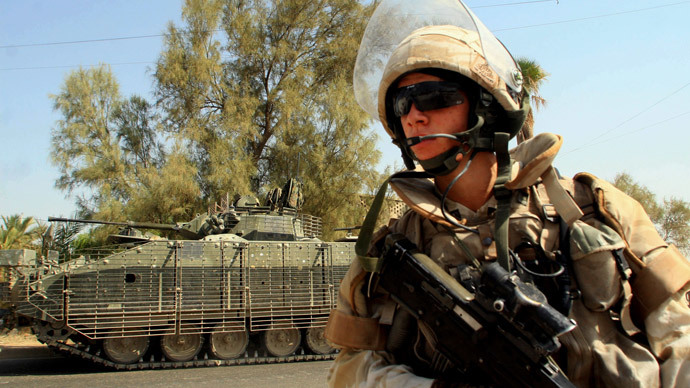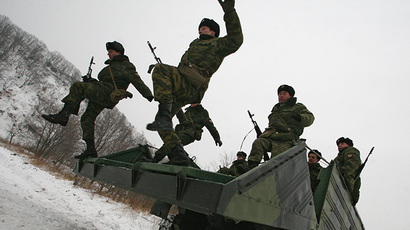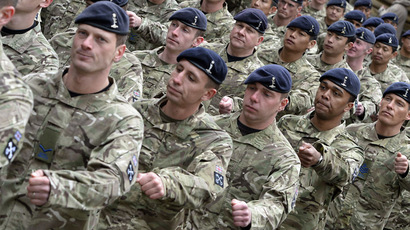Britain wasted £34 billion on military interventions since Cold War

Since 1990 the United Kingdom wasted around $57 billion on military interventions, primarily in Iraq and Afghanistan, which were later judged to be strategic failures, a study published by the Royal United Services Institute (RUSI) says.
The vast majority of money spent by the UK in overseas military operations was in Iraq and Afghanistan the study, Wars in Peace, by RUSI, a British defense and security think tank says.
The figures, which were collated under freedom of information requests from the Ministry of Defense, show that if compensation payments as a result of injury and death are included then the total cost of UK military conflict since 1990 could be as much as £42 billion ($70 billion), while a further £30 billion ($50.3 billion) may have been spent on long term care for veterans, the Guardian reports.
The campaigns in Iraq and Afghanistan, which the study says were judged to be “strategic failures,” accounted for 84 percent of all military interventions costs since 1990.
The study also notes that “there is no longer any serious disagreement” over the fact that the Iraq war actually served to channel and increase the radicalization of young Muslims in the UK. The study refers to estimates that some 100,000 Iraqis died as a result of the second Iraq War and two million refugees flooded into neighboring countries.
The study notes that by 2002, a year before the Iraq war, Saddam Hussein no longer posed any serious threat and that now the threat from Iraq is much greater.
“Today radical jihadist groups stretching across the Iraqi-Syrian border, pose new terrorist threats to the UK and its allies that might not have existed, at least in this form, had Saddam remained in power,” the book says.
Malcolm Chalmers, the RUSI research director, notes that Britain’s disastrous mission in Helmand, southern Afghanistan was plagued by a number of poor decisions. The dismissing of the regional governor Sher Mohammad Akhundzada drove many members of his militia to join the insurgency and Taliban foot soldiers were mainly recruited locally and were “motivated much more by opposition to foreign intervention than by global jihadism.” He also notes that opium cultivation is much higher now than it was before the intervention.
Overall the RUSI research gives British military interventions a six out of ten, citing the first Iraq War of 1991, and smaller scale interventions in Kosovo, Bosnia in the 1990’s and Sierra Leone in 2000 as having more success.
The figures are the net additional costs of operations and do not include what the armed forces would have spent anyway on training exercises and salaries etc.
At a time when the UK is undergoing severe defense cuts and many servicemen and women are losing their jobs, the findings of the study will question the wisdom behind expensive military campaigns which have not been a success. “Have Britain’s military endeavours made it, and the world, a safer place – and at what cost?” is the question raised by the books authors.















